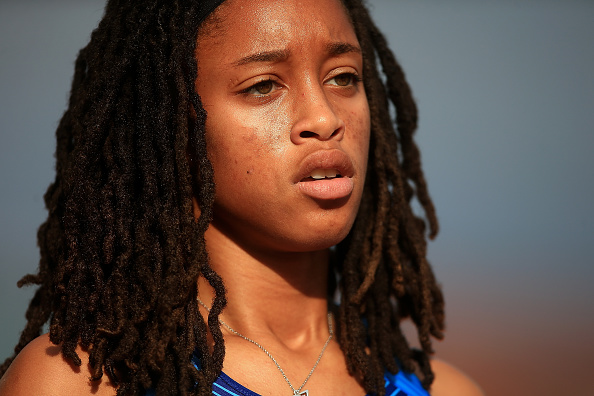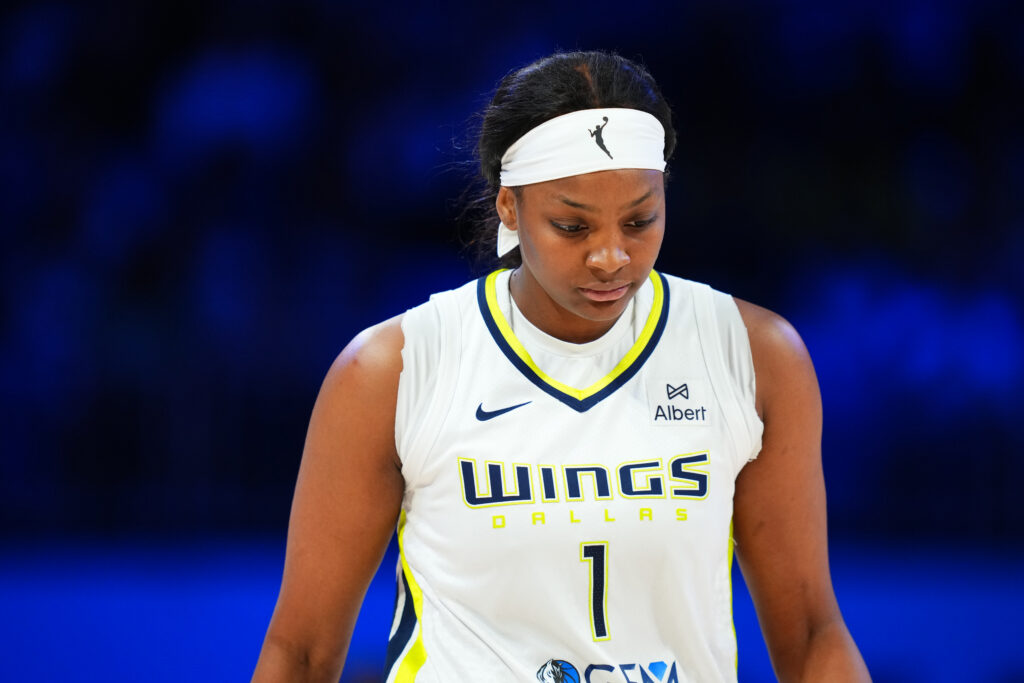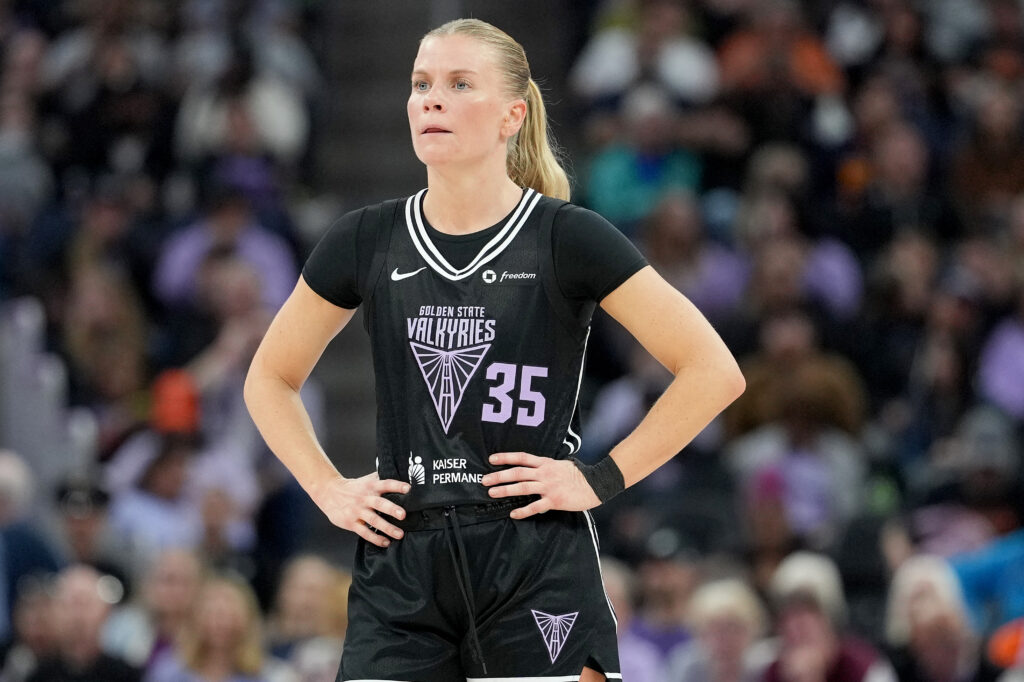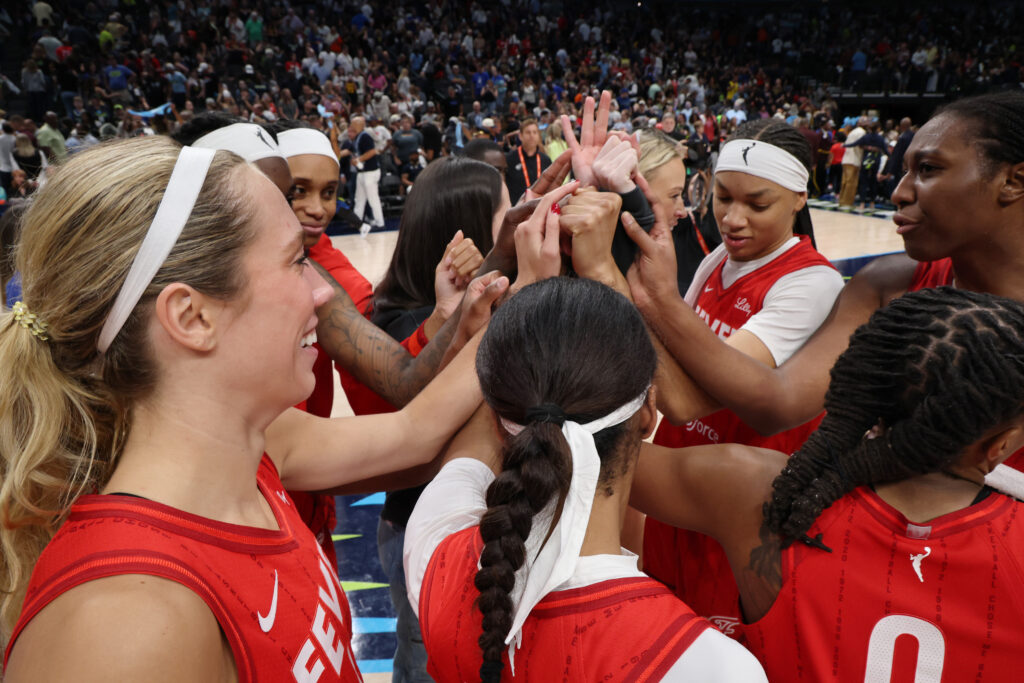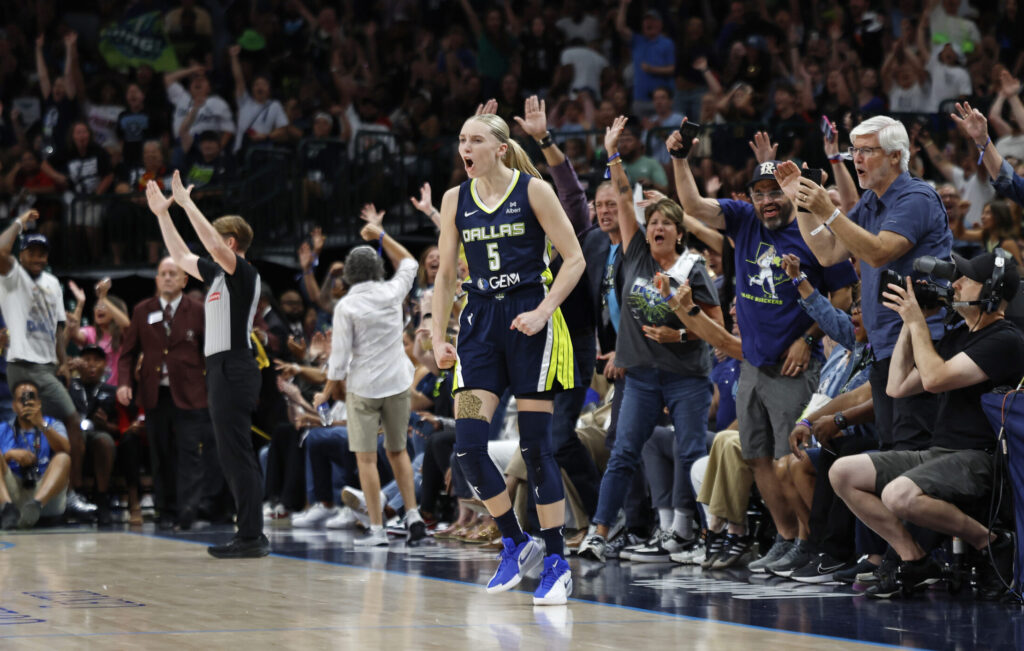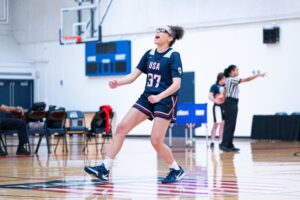Jurnee Woodward is an All-SEC huddler for the Louisiana State University track and field team. During a protest following the killing of George Floyd, Woodward delivered a speech on the need for leadership and accountability, and shared that she had considered leaving the LSU track team after not hearing from her coaches in the wake of Floyd’s death. Below, she spoke with Just Women’s Sports to clarify a few points in her message and to share what led her to speak out in the first place.
Talk to us about the events leading up to the protest. What motivated you to speak out?
Everything happened very quickly, but it feels like it’s been 15 years. Mr. Floyd’s horrible murder forced me to sit back and listen to other people’s stories. It made me become introspective and think about things that have been repressed from my childhood. After a few days, it was brought to my attention by several of my teammates on the women’s sprint team that our coach — Coach Shaver — had not reached out to us yet. I listened as my teammates, my sisters of color, talked about how hurt they were that our head man in charge had not said anything. I had seen people on social media say, “If you are afraid of losing your job, so you decided to stay quiet, then you are part of the problem.” I saw myself as contributing to part of the problem because I didn’t know how to approach any of this. If I go back to LSU and I still haven’t heard anything from Shaver, does that make me part of the problem?
Had you planned to deliver a speech at the protest?
No, it wasn’t planned. When we went to the protest, I felt like I was marching with my brothers and sisters of different colors. It felt like we were standing together for something. It’s true, in unity there is strength. I felt amazing and empowered. When we were sitting outside of the Hayward Police Department, they had a bullhorn and people were coming up from the crowd, expanding upon their stories. By hearing their stories, I felt empowered, but I also realized I didn’t see people like me sharing their stories. I wasn’t seeing young women like me — I wasn’t seeing any athletes. I approached it like I approach a race: there is no turning back. You have to walk down to the starting line in front of everyone and you have to commit.
I knew that my story could touch someone out there and call them to action. I got up there and the words started flowing. I definitely felt the surge of support when I went up there and got that megaphone. I’m an introvert, so it was completely outside of my comfort zone. I spoke out of emotion. It was very raw for me. I was extremely drained after.
In the speech, you talked about how painful it had been to not initially hear from coaches. You said that had led you to consider leaving the team. Can you talk about that?
Yes. First, I just want to clear the air. I am still at LSU. I am returning for my senior year and I’m still going to continue to train and compete in women’s track and field.
When I hadn’t heard from my coach, I had decided that I was going to write an email to him about how I felt because I knew that the girls were upset that they hadn’t been reached out to by any of the coaching staff. Then I decided that I would rather pray, sleep on it, and come to a level headed decision the next morning. I prayed for the words to come to me, I prayed for a sign. Sure enough, the next morning, I woke up to a call from Coach Shaver. It didn’t matter what he said, all that mattered was the fact that he did reach out.
What was your reaction when you saw the video of your speech?
I wasn’t even aware that my aunt had taken a video of me. I’m not going to lie, it was a little hard to rewatch a video that was so emotional and so raw. I like to think that I’m my own biggest critic, so I was picking apart my speech. It was all so fresh and I had never done something like that before.
Were you surprised by the reaction when you posted the video on your social media?
All I wanted was to touch someone. I didn’t expect people to reach out after my speech, but they did. I realized that if I can touch these people in my own community, then maybe I can touch people in other communities as well who might be too afraid to speak up. That’s what led me to post the video. I knew when I posted it that not everyone was going to be happy. I didn’t know who I was going to receive support from and who I wasn’t. So far, the video does seem to resonate with a lot of people — in good ways and bad ways. I said all that I wanted to say in that moment, but now I feel like there needs to be some clarification.
What is it that you want to clarify?
I know I wasn’t the youngest in the crowd, so there are some choice curse words that I would retract from my statement. I also want to clarify that Coach Shaver is not a bad man. He is not a bad coach. He has shown me and a lot of other athletes love and support, especially with our mental health. And the timeline of events might have been screwed up in my speech, or maybe people weren’t listening, or maybe they held onto one part of what I said. If I could do that speech again, rehearsed, I would. To be clear, I do not regret one thing that I said. Would I say it differently? Yes. But do I regret what I said? Not at all.
What do you think that LSU, specifically, needs to do to take action moving forward?
The thing is, right after I posted the speech on social media, Coach Shaver and our coaching staff were wonderful in quickly bringing the team together on a Zoom call and addressing it face-to-face. Maybe there was some sort of miscommunication on both ends. My call for action was not just targeted at LSU, but at everyone. People need to hold other people accountable, no matter what. We need coaches and athletes to work together in order to lift up those voices that are unheard. After I posted the video, Coach Shaver had a talk with everyone on the LSU track and field women’s sprint team that I believe was important to have. Those discussions that we need to have on our teams and with our staff are going to be hard, but it is what needs to be done.
My words were not in any way meant to be harmful to LSU, which has done so much for me. I’m thankful for the opportunities that they have given me that have helped me to become the person that I am today — the elite athlete that I am today.
What were your coach’s thoughts about the video and your speech?
I can’t speak for him, but in the Zoom call meeting with our team he said that the video touched him and that it hurt him to hear some of those words. Those words created the conversation, though. When Coach Shaver first called me, before the protest, he told me, “I see you as one of the leaders on our team.” In my opinion, I am doing what he asks of me — not just on the team, but also in life.
How important do you think it is for athletes in particular to speak out?
I think it is very powerful. It is one of the main reasons I decided to go up there and speak myself. There is definitely a level of fear of being turned away by one’s peers, by one’s teammates, by one’s coaches. In my mind, though, I am willing to give up everything for what I am and for what I believe in. I’m tired — a lot of people are tired and exhausted. But, I’m not going to stay silent. I believe in standing up for what I think is right. So do my fellow athletes at LSU, which is why we’ve now created the Black Student-Athlete Association (BSAA) to help tackle these topics at our college. Hopefully other collegiate athletes will follow suit.
I do not want this narrative to get pushed to the wayside when the fall semester begins. We set a precedent for the generations that come after us. We are leaders and it’s time that we start holding ourselves accountable.
